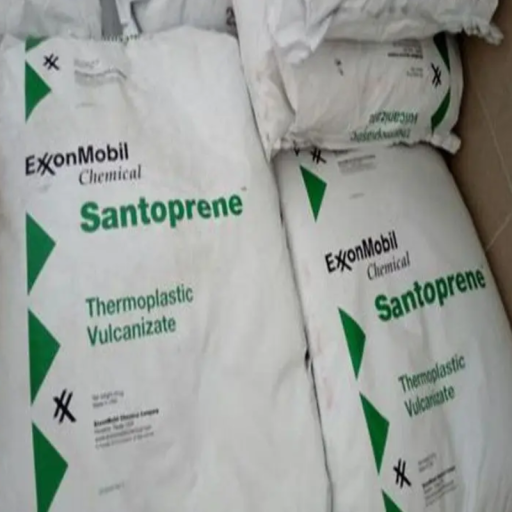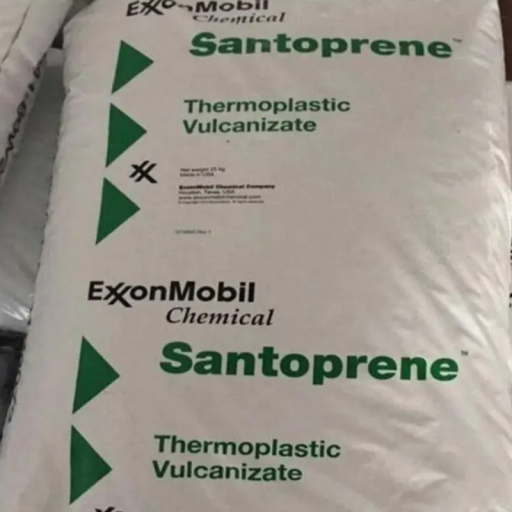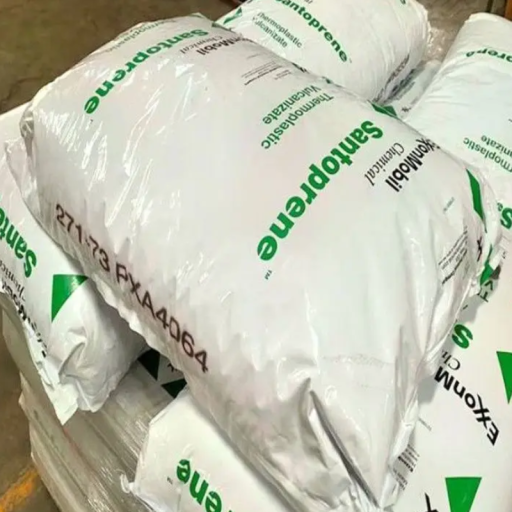Santoprene 201 64 plastic pellets are part of the thermoplastic elastomer family, offering a unique combination of rubber-like flexibility and thermoplastic processability. These pellets, composed of polypropylene and vulcanized EPDM rubber, provide excellent compression set resistance, durability, and chemical resilience. Ideal for a variety of applications, TPV material simplify manufacturing, reduce overall system costs, and support sustainable practices through in-process and end-of-life recyclability.
TPV Pellets(201-64) Price Range
| Quantity (Kilograms) | Price per Kilogram (USD) |
|---|---|
| 25 - 499 | $6.50 - $7.00 |
| 500 - 1,999 | $6.00 - $6.50 |
| 2,000 - 4,999 | $5.50 - $6.00 |
| 5,000+ | $5.00 - $5.50 |
For specific pricing details or to discuss your bulk order needs, please reach out to our team. We are here to assist with tailored quotes and recommendations for your production requirements.
TPV Material Properties
| Property | Value |
|---|---|
| Density | 970 kg/m³ |
| Shore A Hardness (15s) | 69 |
| Tensile Stress at 100% Elongation | 2.6 MPa |
| Tensile Stress at Break | 7.0 MPa |
| Elongation at Break | 450 % |
| Compression Set (70°C, 24h) | 18 % |
| Compression Set (125°C, 70h) | 44 % |
| Tear Strength | 22 kN/m |
| Brittleness Temperature | -60 °C |
| Relative Temperature Index (RTI) | Electrical: 100 °C |
| Heat Deflection Temperature (1.5mm) | 135 °C |
| Moulding Shrinkage (Parallel) | 3.2 % |
| Moulding Shrinkage (Normal) | 0.8 % |
| Burning Behavior at 1.5mm | HB |
TPV Plastic Resin Uses
TPV plastic material offers exceptional flexibility, durability, and chemical resistance, making it an ideal choice for various industrial and manufacturing applications. Its adaptability supports diverse uses across multiple sectors.
- Automotive Industry
- Industrial Applications
- Consumer Goods
- Medical Equipment
- Construction Materials
- Packaging Solutions
- Electrical Components
- Sporting Goods and Accessories
Contact Us for TPV Plastic Pellets Information
Looking for high-quality TPV plastic pellets for your industrial or manufacturing needs? Our premium-grade TPV material offers exceptional flexibility, chemical resistance, and durability, making it suitable for a wide range of applications. Whether you’re in the automotive, consumer goods, or industrial sector, we have the right solution for you.
Contact us today to learn more about our TPV material specifications, applications, and pricing options. Our team is ready to assist with tailored recommendations to meet your production requirements.




Sheila J Beasley –
I’d probably use a TPV on anything that is going to have sustained contact in direct sunlight, the typical carrier resin on most TPU’s will leech out with UV exposure.
Hector Lewis –
As someone in product design, I’ve always appreciated TPV for its versatility. It’s flexible enough for dynamic parts yet tough enough to handle moderate stress. When paired with the right substrate, it adheres well and stays put.
Kevin Todd –
Santoprene 201-64 is my go-to for custom gaskets. It’s soft yet durable, and the 69A hardness is perfect for sealing applications.
Mathew Vanover –
This stuff is weirdly satisfying to work with. It’s soft but doesn’t feel cheap, and you can mold it into almost anything. I made a custom grip for my walking cane, and it’s a massive improvement over the stock plastic one.
Lance Hernandez –
Tried 201-64 for a phone case prototype, and I’m impressed. It’s soft to the touch but tough enough to protect my phone from drops. Plus, it’s easy to color, so I could match it to my style. Way better than silicone in terms of durability.
Robert Beasley –
The weather resistance is outstanding, and it doesn’t crack or harden over time. It’s a bit pricier than PVC, but the durability makes it worth every penny.
Todd Sumrall –
We tested TPV against standard EPDM for automotive seals, and the results were clear: TPV wins in flexibility and UV resistance. It’s not perfect—slightly less chemical-resistant—but it’s easier to process and has lower overall shrinkage.
Donna Collins –
TPV shines in overmolding applications. It bonds decently with hard plastics like PP and even some grades of nylon. Compared to SEBS, it holds its shape better under thermal cycling, which is a huge advantage for long-term use.
Lisa Thibodeaux –
TPV is an underrated material in medical device prototyping. It offers a unique combination of flexibility and sterilization compatibility, making it ideal for components like tubing or soft grips. It’s not as stiff as TPU, but that’s often a benefit in ergonomic designs.
Michael Ambrosino –
I used these Santoprene tpv to make a custom handle for my garden tools, the grip is comfortable, and it doesn’t slip, even when my hands are wet.